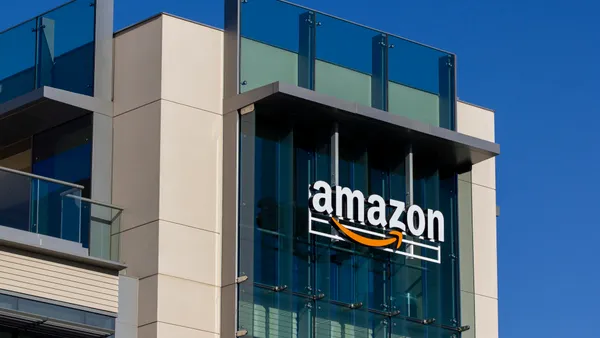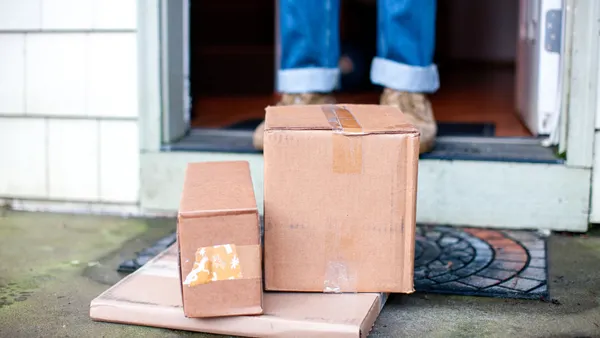Dive Brief:
- The supply chain needs a reputation makeover if retailers are going to continue to recruit and hire talent to meet demand, according to Dollar Tree Chief Supply Chain Officer Gary Maxwell.
- "I really don’t believe we get the credit we deserve for good jobs in the supply chain. I think we should have a good reputation, but that’s not what I see as I read articles and travel around," Maxwell said on stage at The Retail Industry Leaders Association's LINK2019 conference.
- In addition to a better reputation, supply chains need to be more willing to incentivize productivity, increase the safety and reduce the physical strain of jobs by automating some the most physically taxing tasks, Maxwell said.
Dive Insight:
Maxwell may have a point that the reputation of warehouse jobs in particular has been tarnished by recent news reports. Stories of pregnancy discrimination at XPO Logistics and restriction of bathroom breaks at Amazon are the latest examples.
The public perception of e-commerce fulfillment positions, however, is at least in part due to the concept of incentivizing individual productivity, complicating Maxwell's recommendation. The infamous story of Amazon workers urinating in bottles in order to make their productivity quotas comes to mind. (Amazon has denied ordering this behavior.)
Maxwell expressed strong favor for incentivizing productivity whether at the individual or team level, or both.
"I think an associate benefiting when they work harder, when they contribute to the company, when they touch more cases, load more trailers — I think participating in that benefit that our shareholders and the company gets is really crucial," he said. "I don’t think we should apologize for being capitalist."
Maxwell didn't overtly reference any of the public cases of incentives gone wrong, but he did acknowledge some supply chains have moved away from incentivizing productivity toward a straight wage, which he thinks the industry should reconsider.
"Some people would argue that when you just reward the individual, it sets off all kinds of other bad behavior," Maxwell said. "I get that and so often times we have a combination of incentives in place — sometimes at the individual level, but sometimes at the group level because we want to incent the entire team or the entire facility." He added that incentives can also reward safety or a lack of accidents in addition to productivity.
Beyond incentives, Maxwell recommended automating physically difficult tasks to increase safety and connecting the work of supply chain employees to the end result.
"Whether it's related to families, food, the drugs and medicines that people need, can we all connect our associates to the purpose a supply chain has so they don’t just feel like they’re moving boxes," he said.














